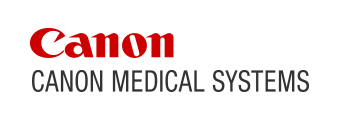News | Press Releases
November 27, 2007
TOSHIBA LAUNCHES GROUNDBREAKING CT SYSTEM - THE AquilionONE
New Dynamic Volume Computed Tomography System Enables Faster, More Accurate Diagnosis to Reduce Healthcare Costs and Improve Patient Care
CHICAGO, Nov. 26, 2006 - Toshiba America Medical Systems, Inc. a leader in diagnostic and medical imaging today introduced the most advanced diagnostic imaging equipment available - the AquilionONE™. This dynamic volume computed tomography system revolutionizes patient care by reducing diagnosis time for life threatening diseases like stroke and heart disease from days and hours to mere minutes. The Area Detector CT, AquilionONE, will debut at the Radiological Society of North America's annual meeting in Chicago.
For the first time, physicians can see not only a three-dimensional depiction of an organ, but also the organ's blood flow and dynamic function. Unlike any other CT system, the AquilionONE can scan one organ - including heart, brain and other organs - in one rotation because it covers 16cm of anatomy with the same high resolution 0.5mm detector elements. This reduces exam time as well as radiation and contrast dose and provides dramatically more accurate diagnoses because the organ or area is captured in a single rotation at one moment in time, eliminating the need to reconstruct slices from multiple points in time.
In addition to its clinical benefits, this breakthrough technology can cut costs because diagnosis time is significantly reduced and unnecessary tests can be eliminated. With its ability to perform uniquely comprehensive exams, including functional studies, the AquilionONE reduces the need for multiple and duplicative tests and invasive procedures.
"The introduction of this system marks an important milestone in the history of Computed Tomography," said Doug Ryan, senior director, CT Business Unit, Toshiba America Medical Systems. "The culmination of almost 20 years of dedicated research, dynamic volume CT establishes a major breakthrough in CT imaging, offering advanced applications that significantly enhance patient care."
Real-world Patient Benefits
The AquilionONE has the potential to save lives and improve the quality of life for many people, especially patients with neurological symptoms, especially stroke. When a patient comes to a hospital's emergency room (ER) exhibiting stroke symptoms, it can take hours to diagnose and treat the patient when time is of the essence. Typically, stroke patients will be taken first to the hospital's CT system, but with current CT technology results often are inconclusive and additional tests such as MR exams are necessary, extending diagnosis time to as much as four or more hours. With the AquilionONE, time-to-diagnosis can be dramatically reduced to minutes because complete functional data is acquired accurately and quickly with less radiation and contrast. This improved diagnosis time could greatly impact patient quality of life.
For patients exhibiting symptoms of heart conditions, diagnosis time can be reduced from days to minutes. Typically, patients who come to the ER with chest pain are given a myriad of tests to identify the problem, including an EKG, calcium study, CT angiography (CTA), nuclear test and catheterization. Tests of this nature could take days to complete and would expose the patient to significant radiation and contrast dose. With the AquilionONE, a single comprehensive exam can give physicians all of the information they need to diagnose and treat the patient, including calcium scores, visualization of the coronaries, wall motion and ejection fraction (EF), perfusion and viability in less than 20 minutes and at significantly less dose.
The Path to Dynamic Volume CT
Toshiba's road to dynamic volume CT began nearly 20 years ago. The careful planning of the Quantum Detector technology platform made it possible to produce the industry's thinnest detector elements at 0.5mm. In addition, careful planning for the gantry resulted in the equipment's ability to support 350ms rotations.
Prototypes and beta systems have been under rapid development. In 2006 and early 2007, AquilionONE beta systems were tested at Fujita Health University and the National Cancer Center in Japan and Johns Hopkins University in the U.S. Feedback from the beta systems have been integrated into the system to ensure the best possible clinical outcomes.
Most recently, U.S. commercial units have been installed at Johns Hopkins University in Baltimore and Brigham and Women's Hospital in Boston.
*AquilionONE™ is a trademark of Toshiba Medical Systems Corporation



